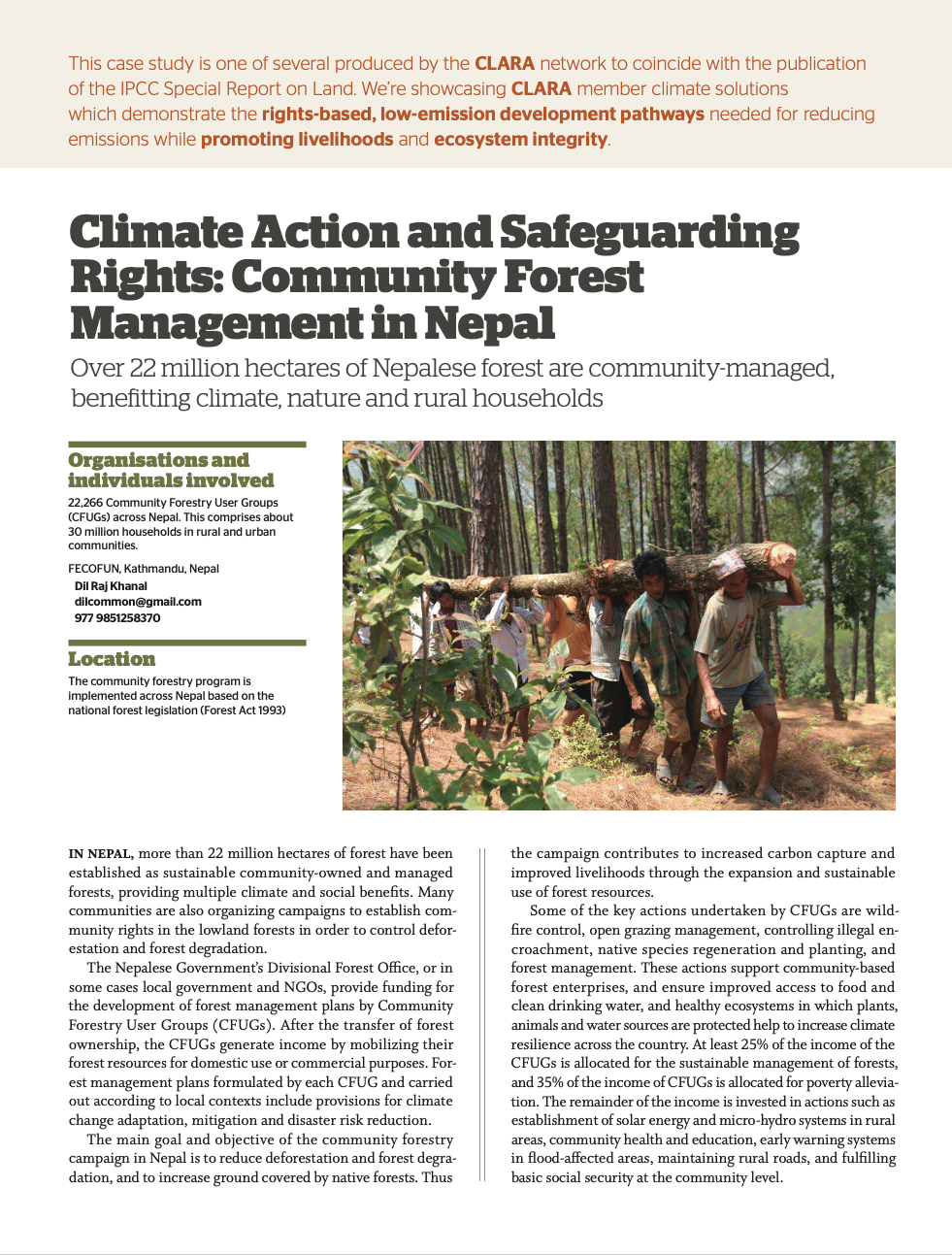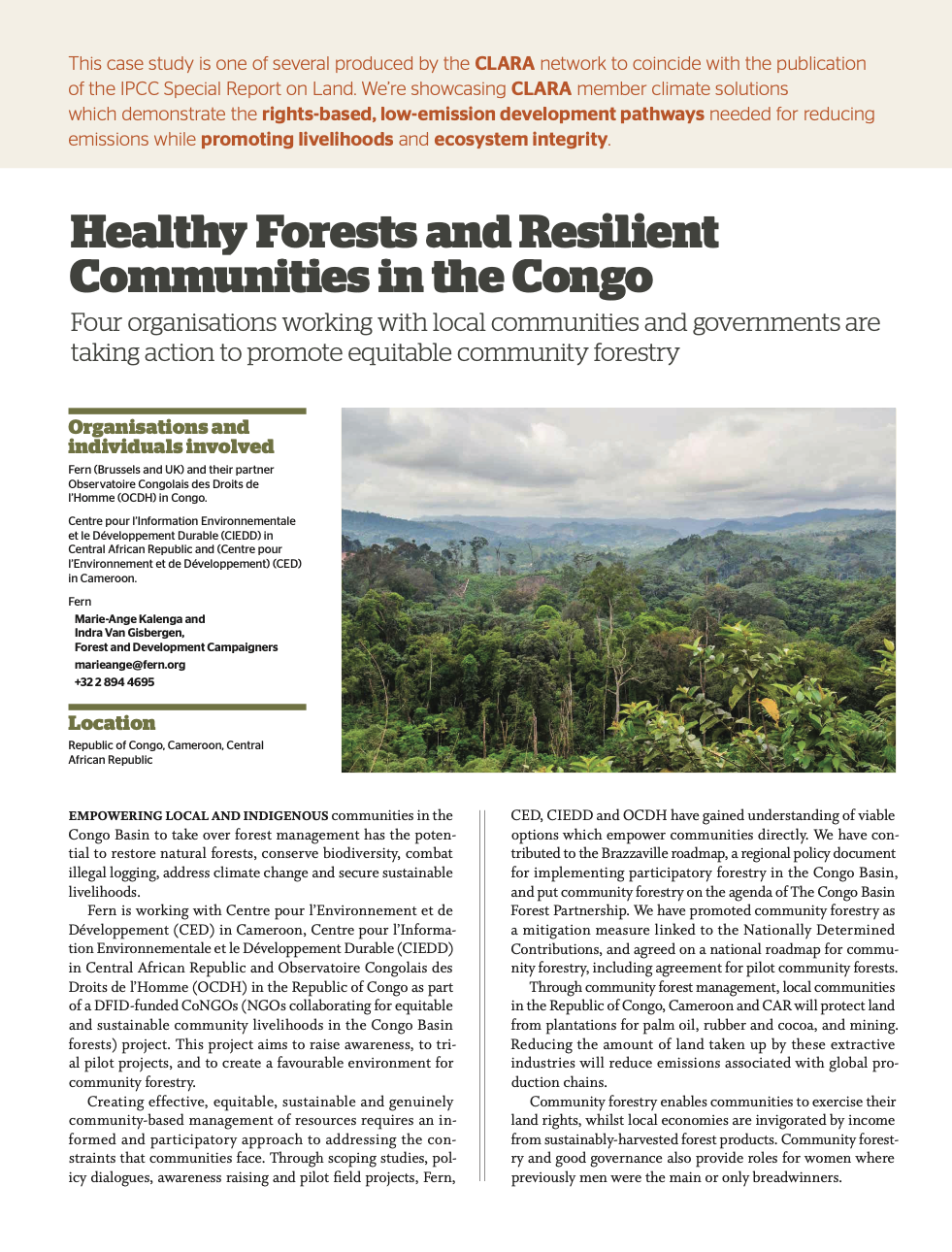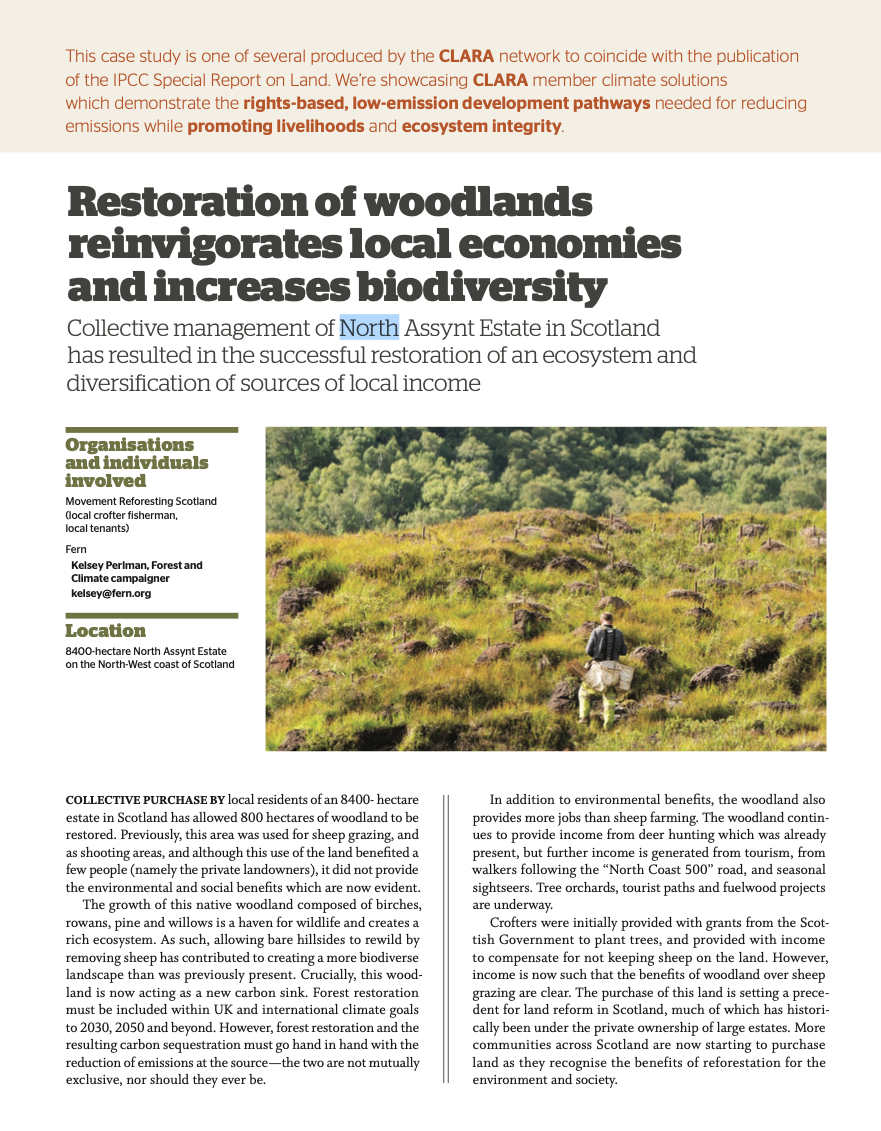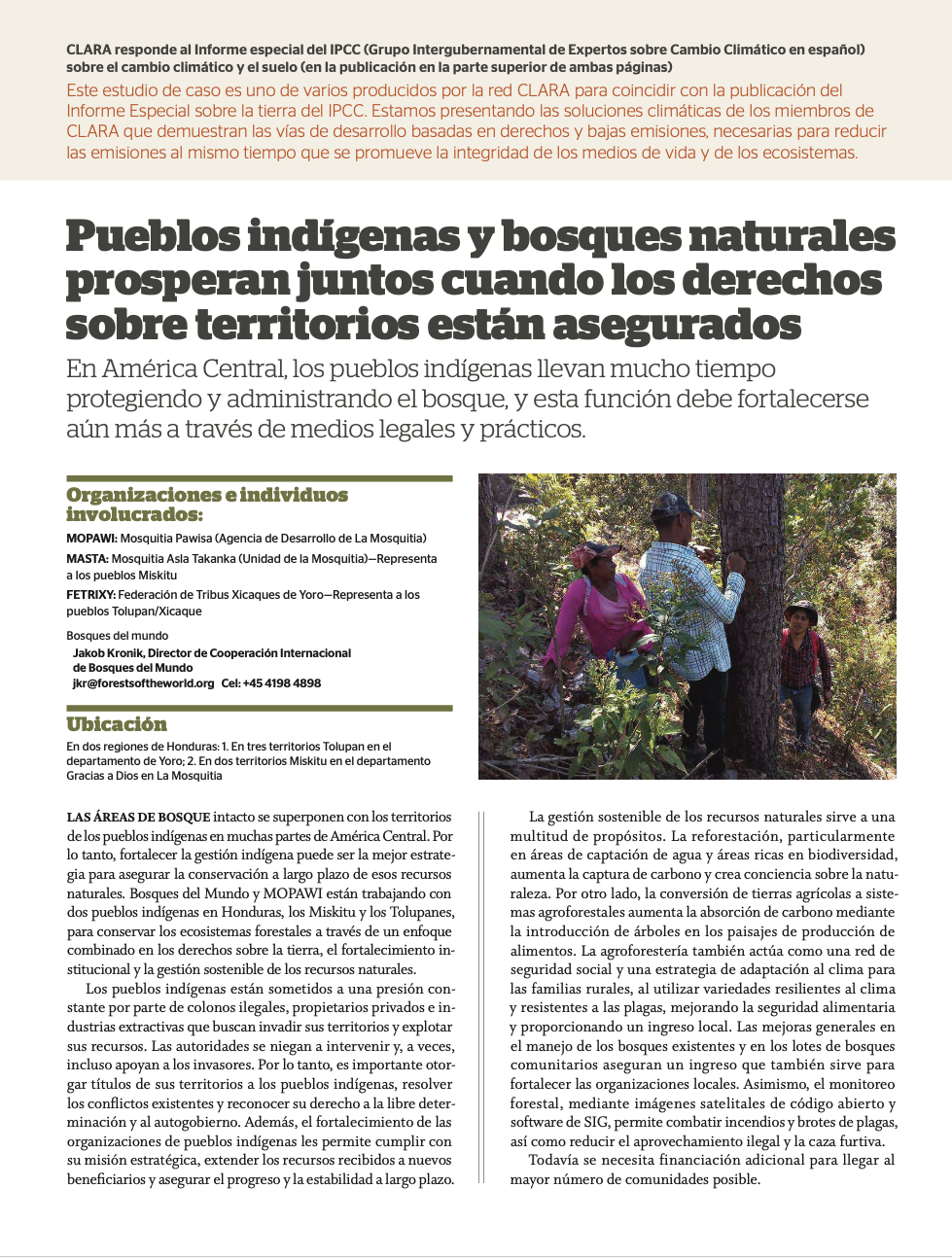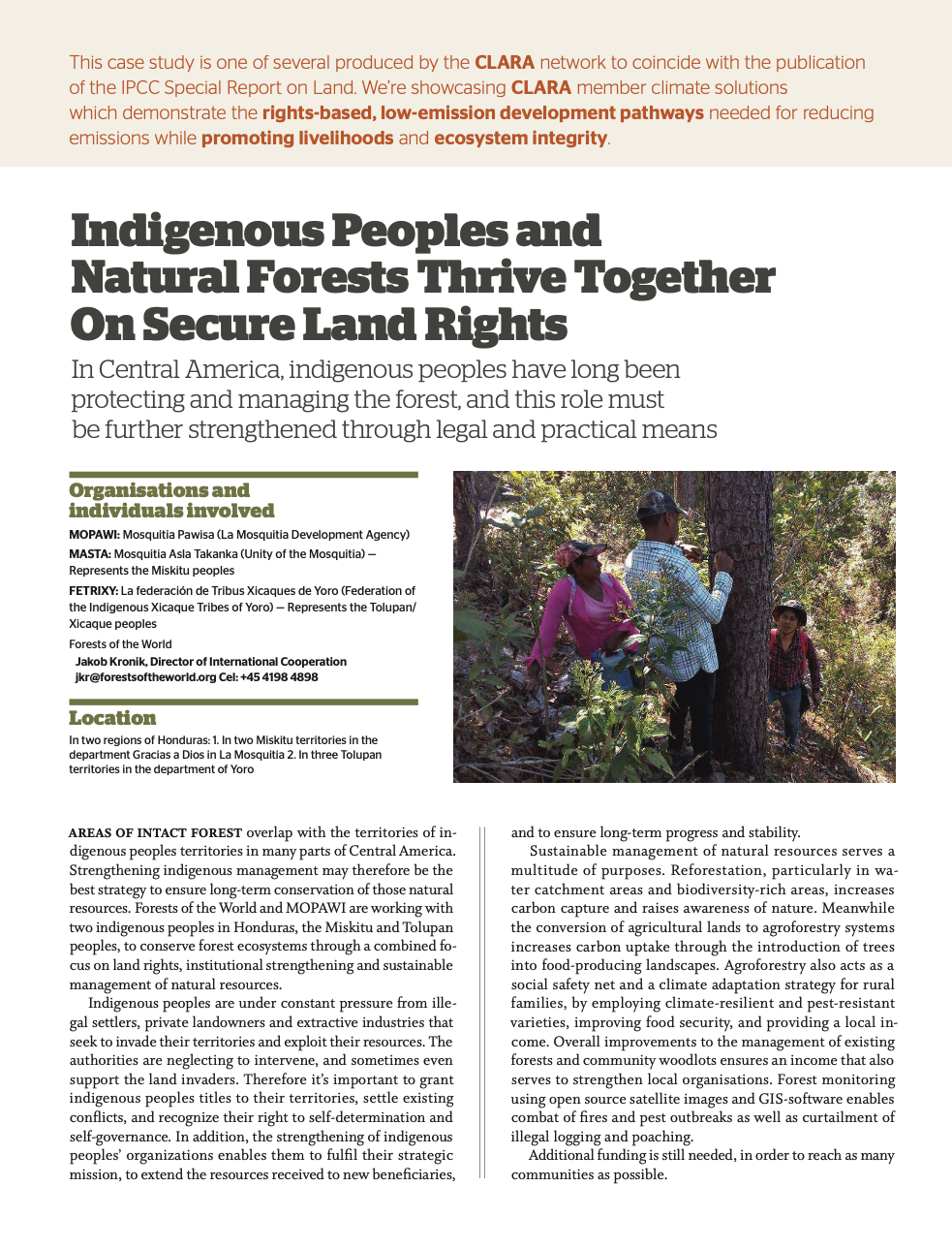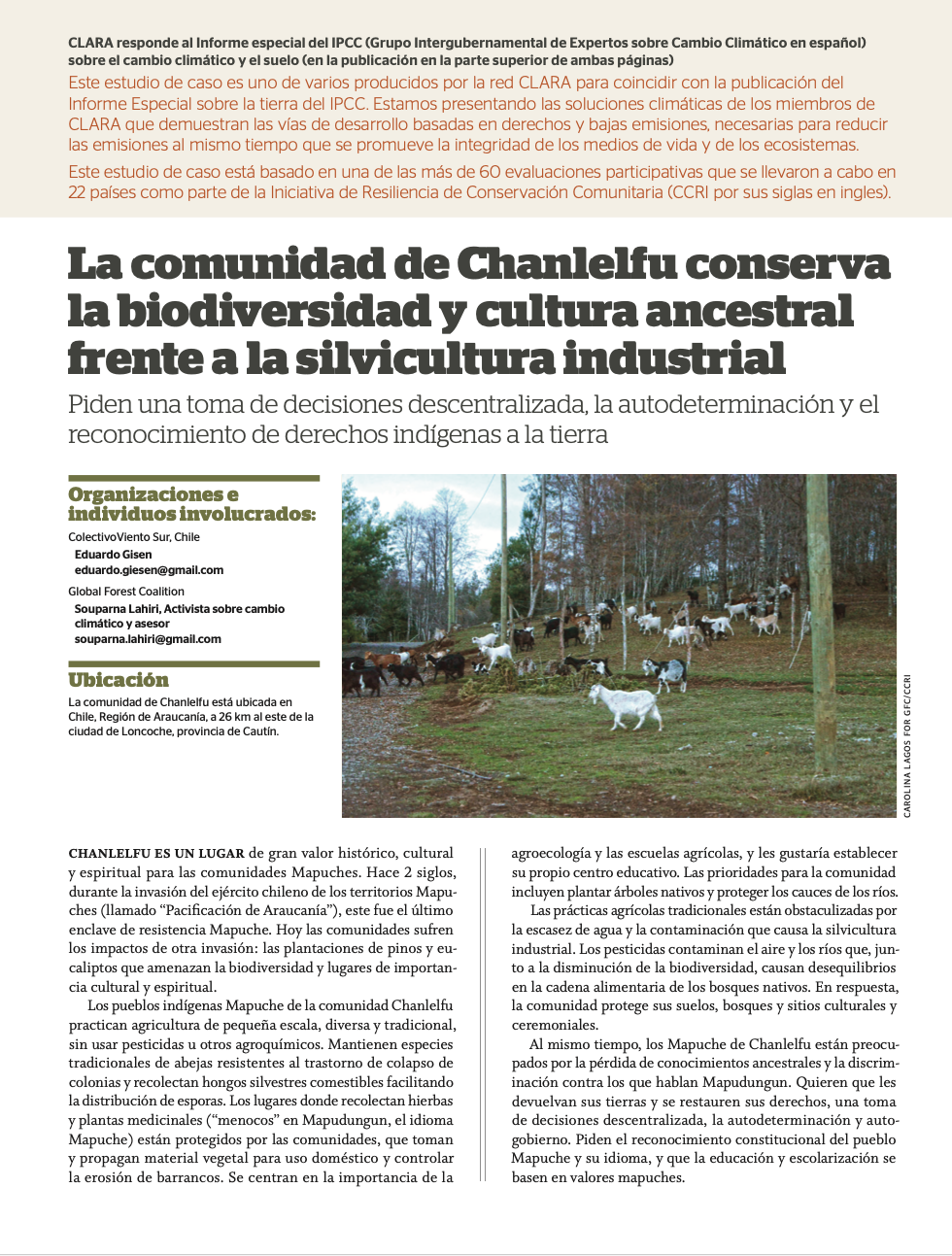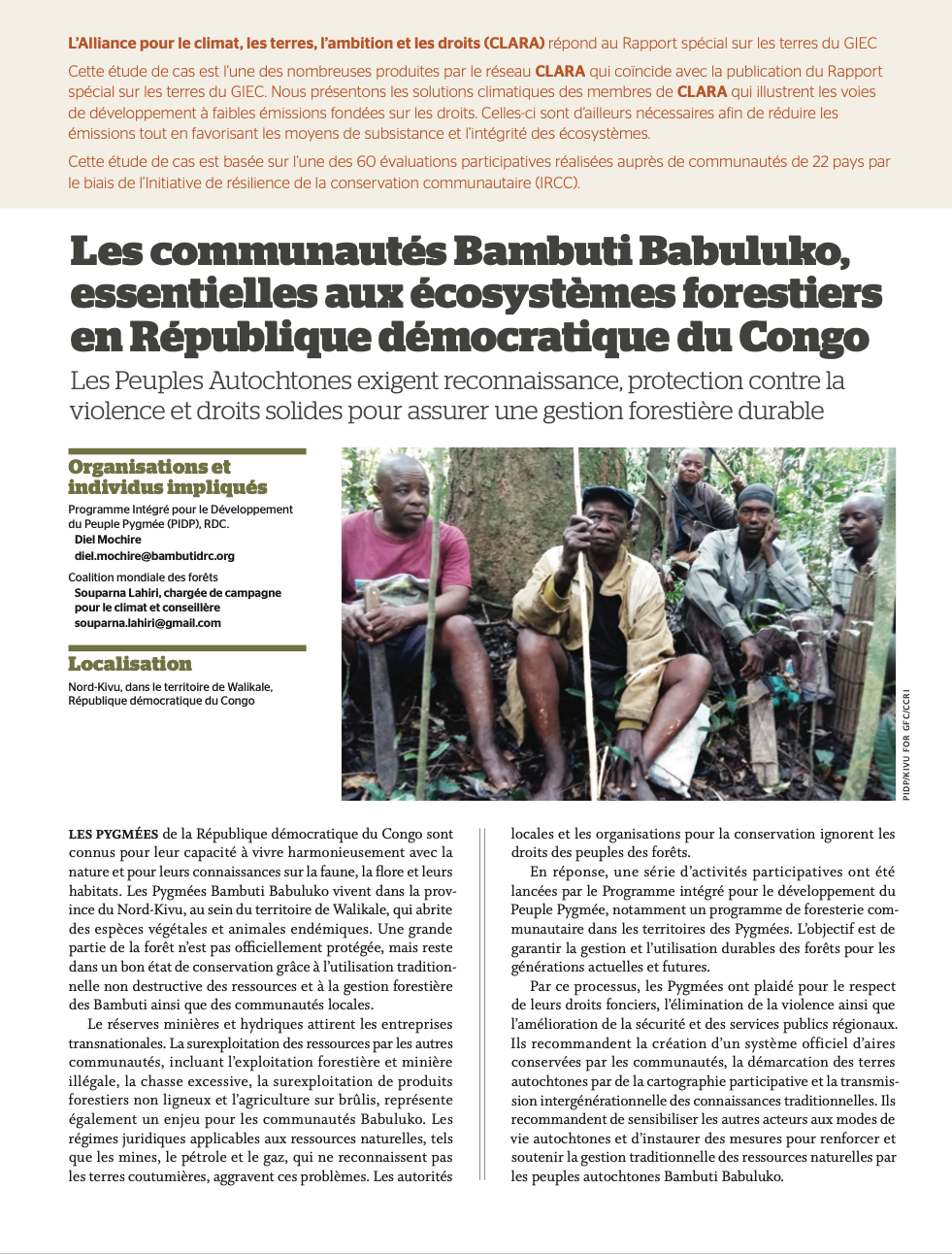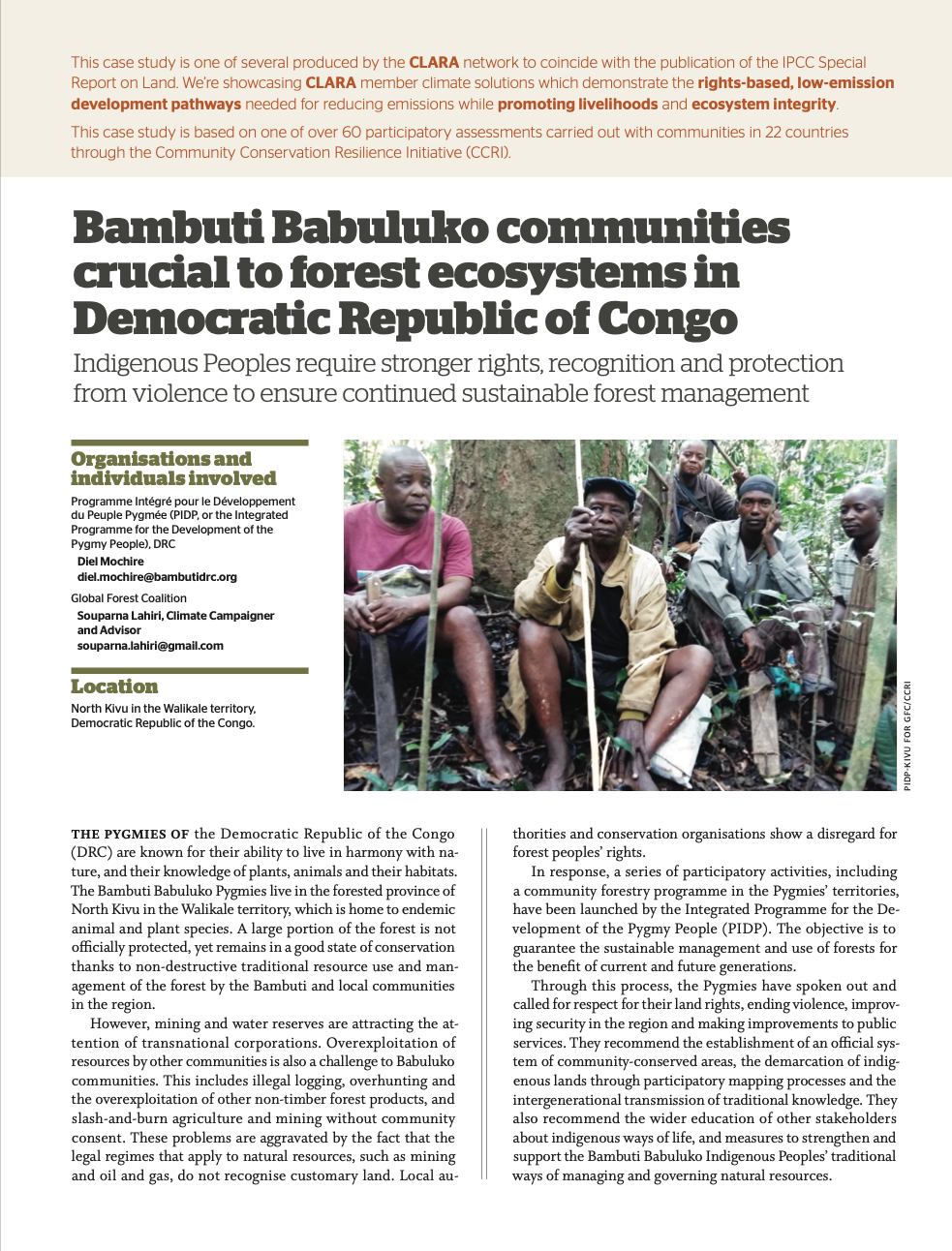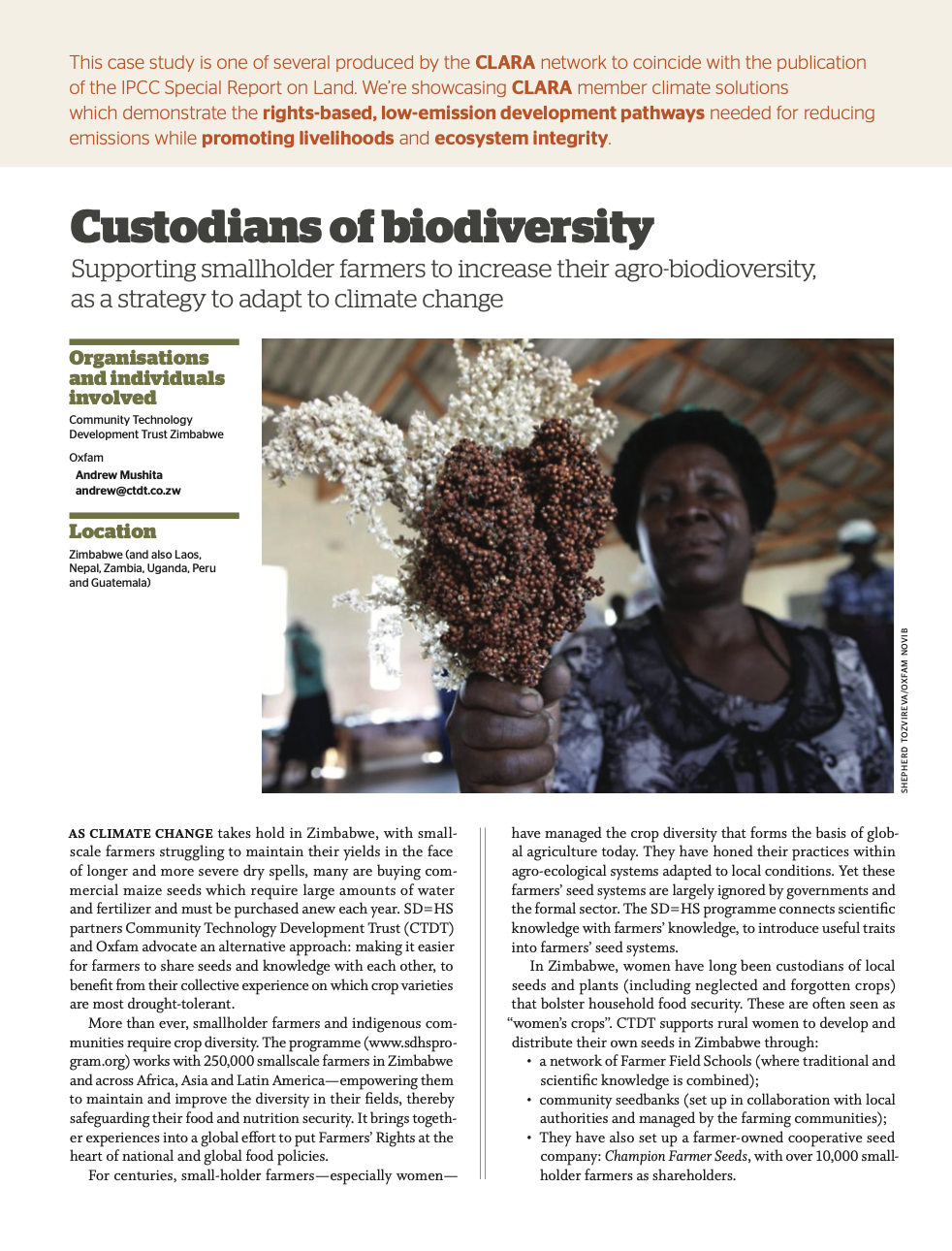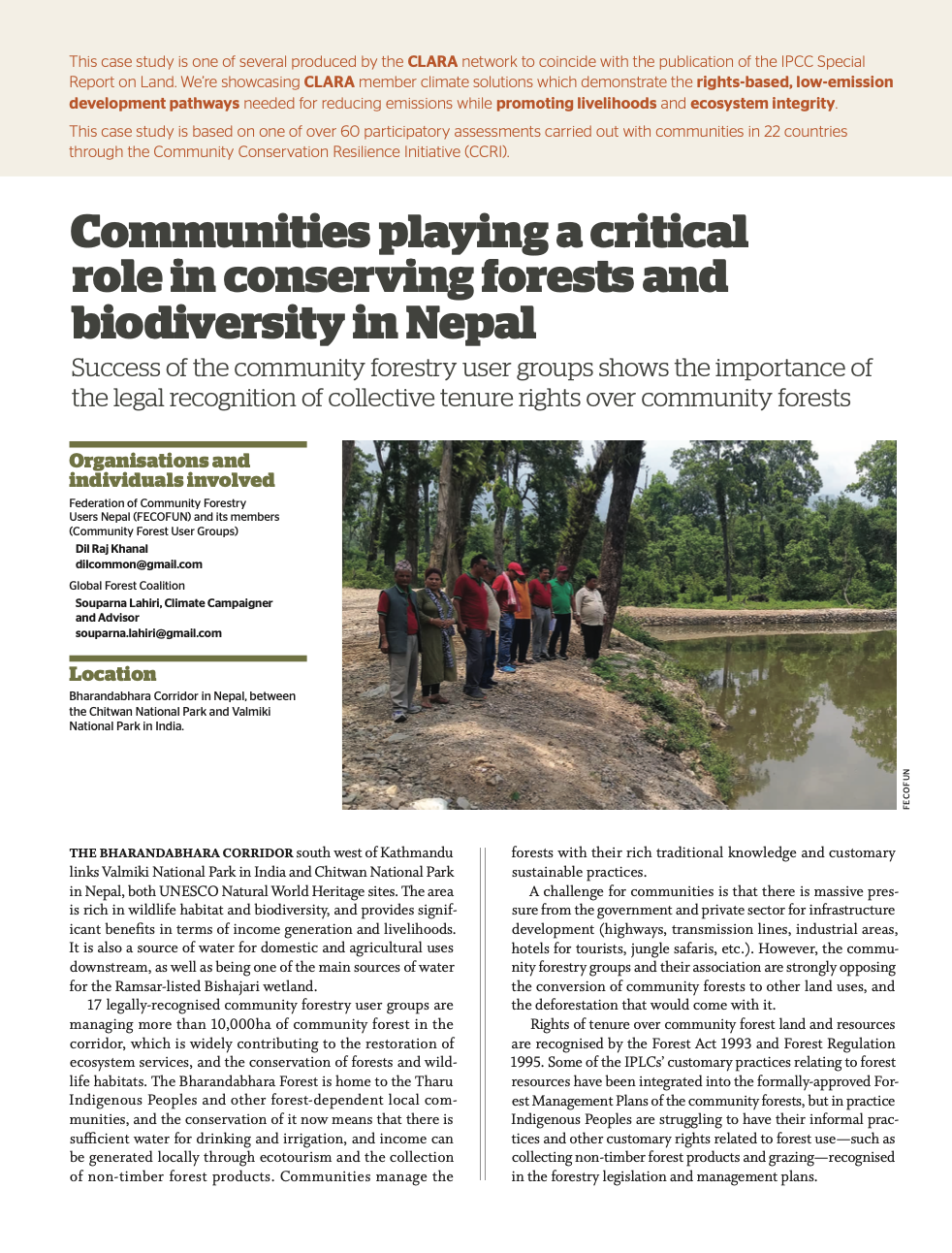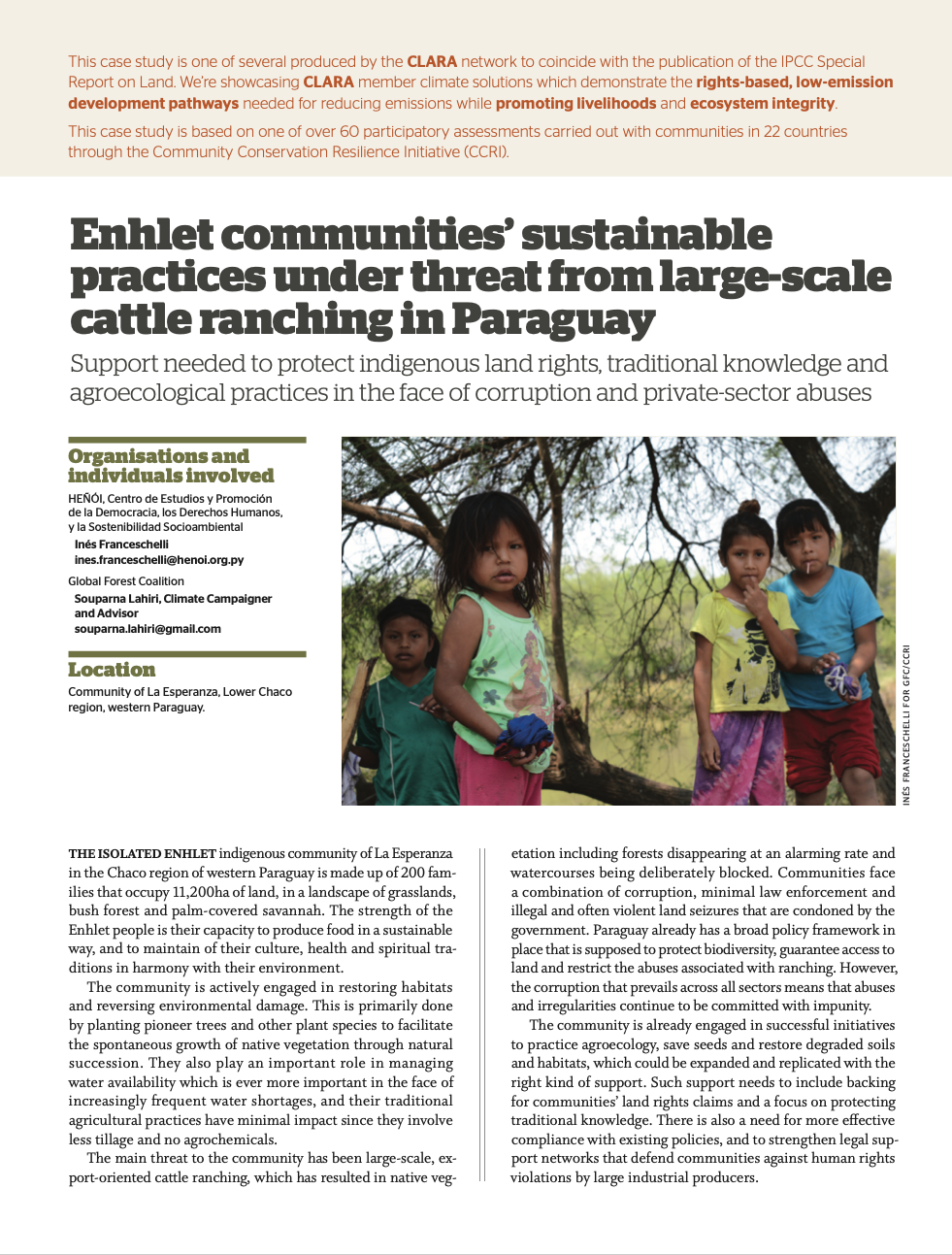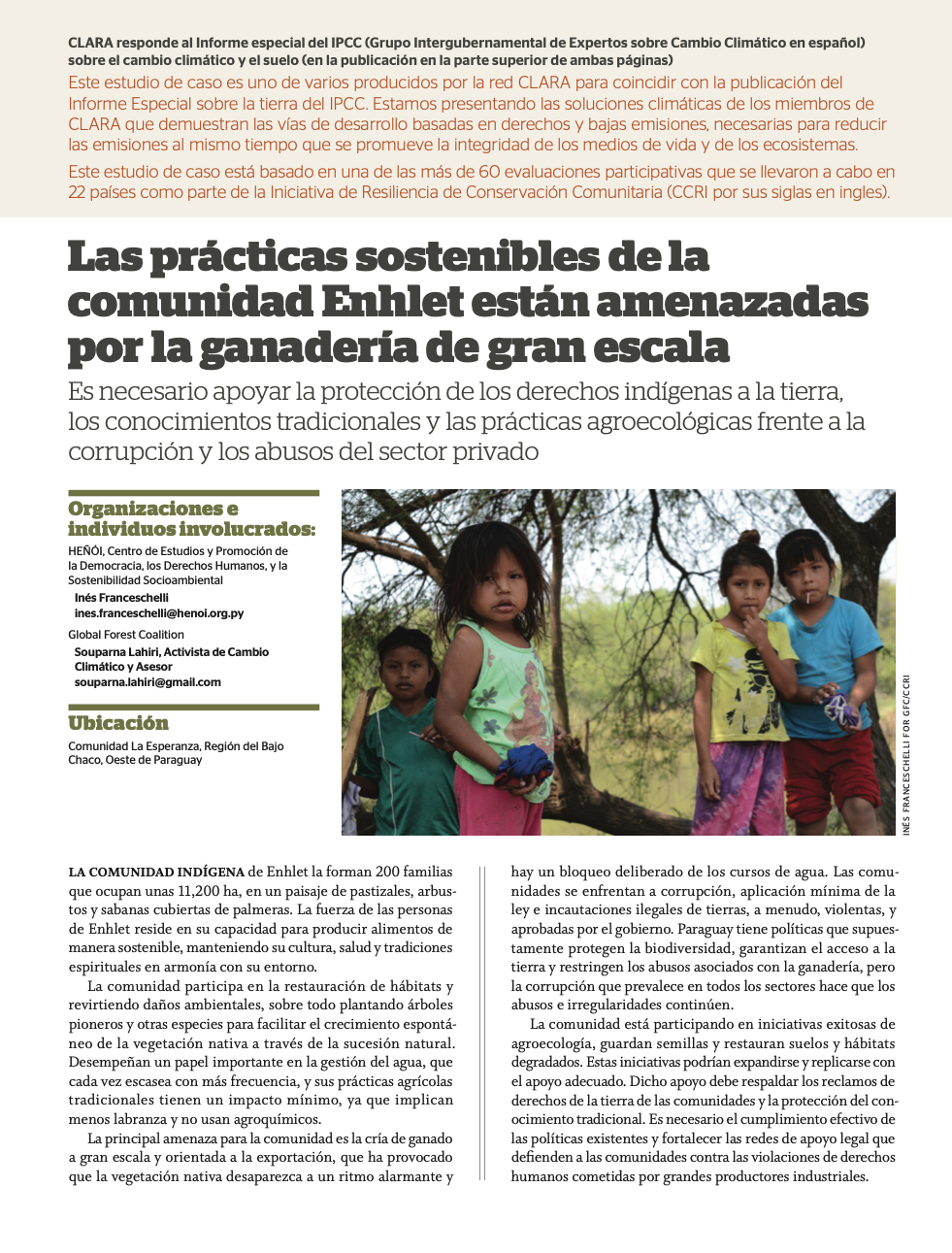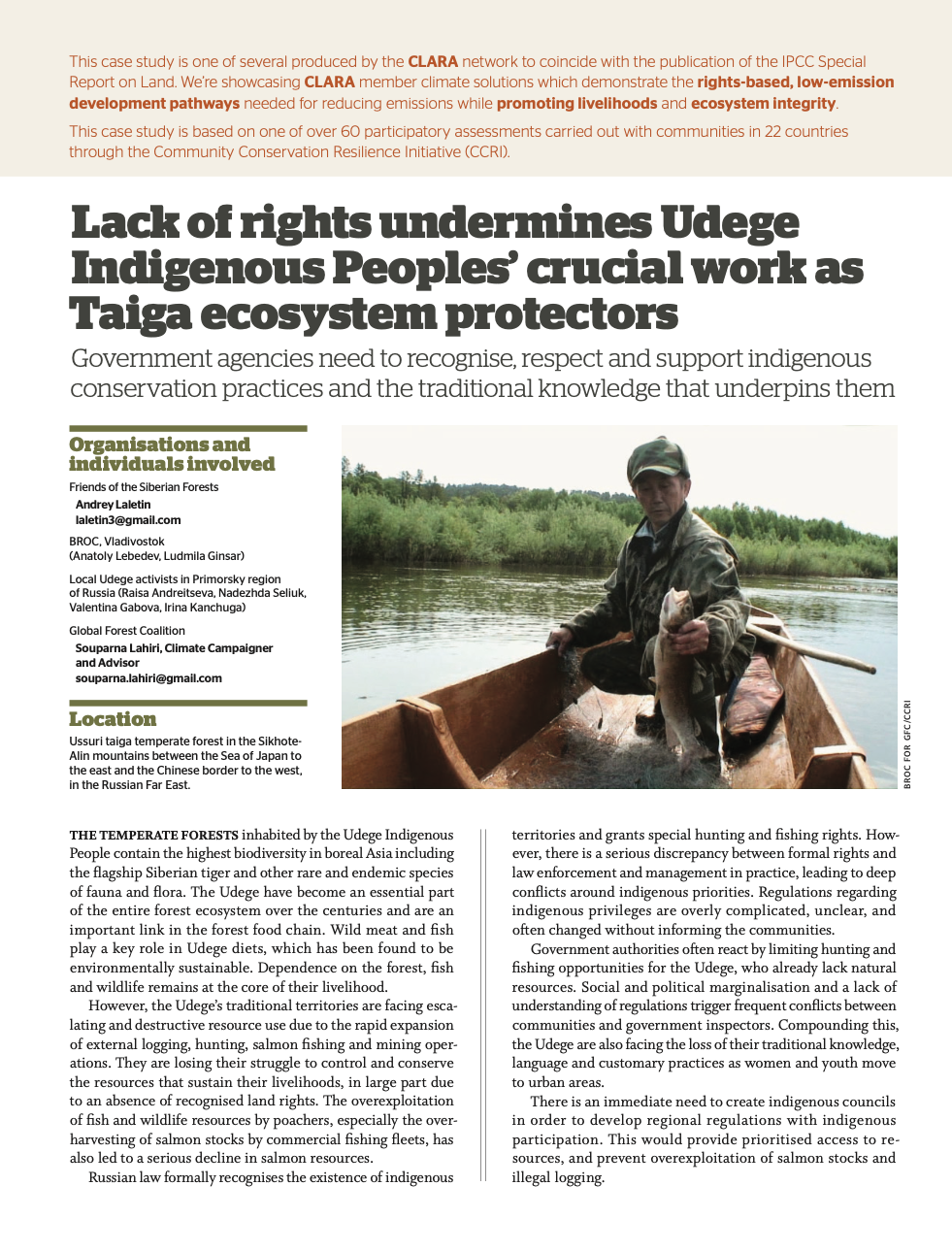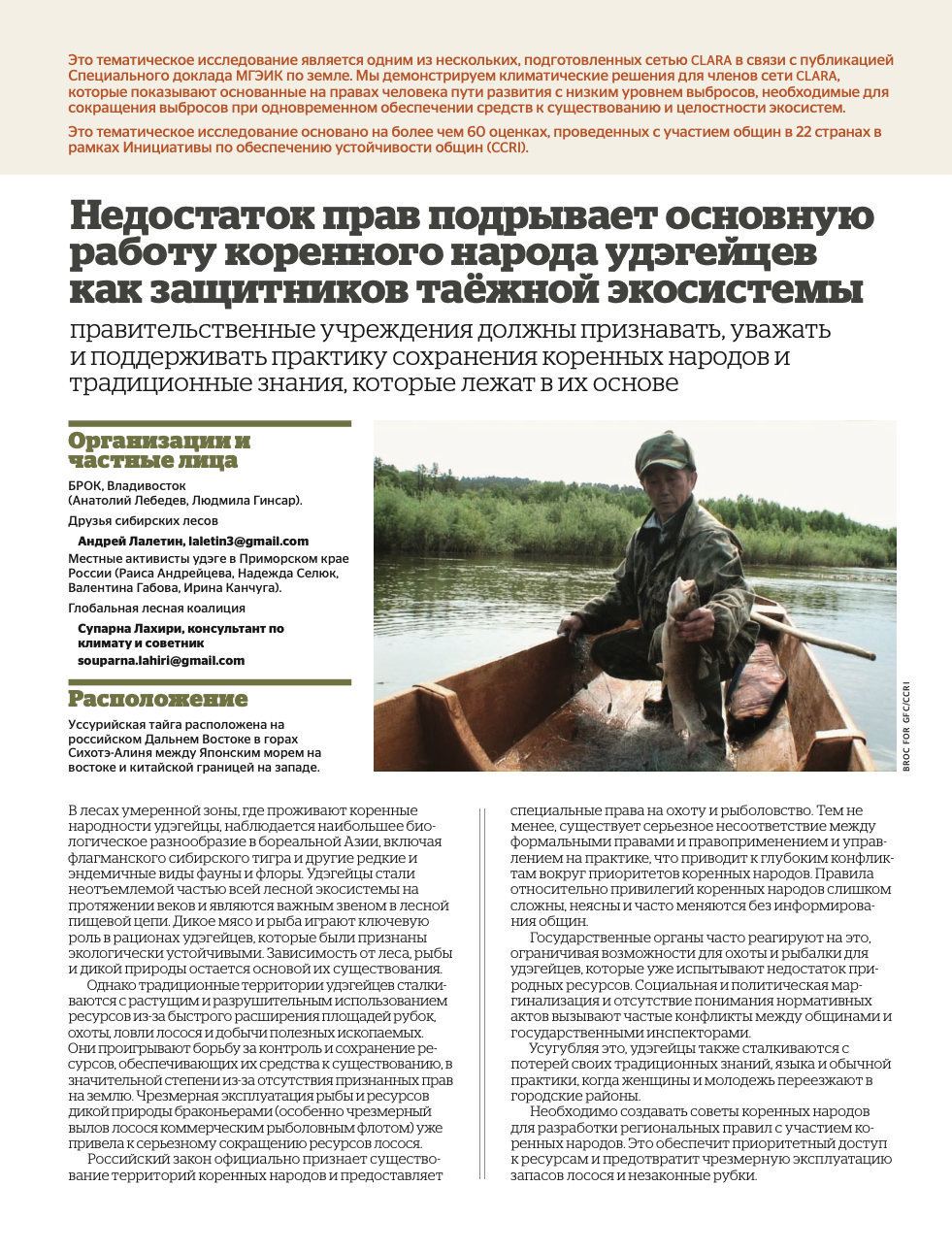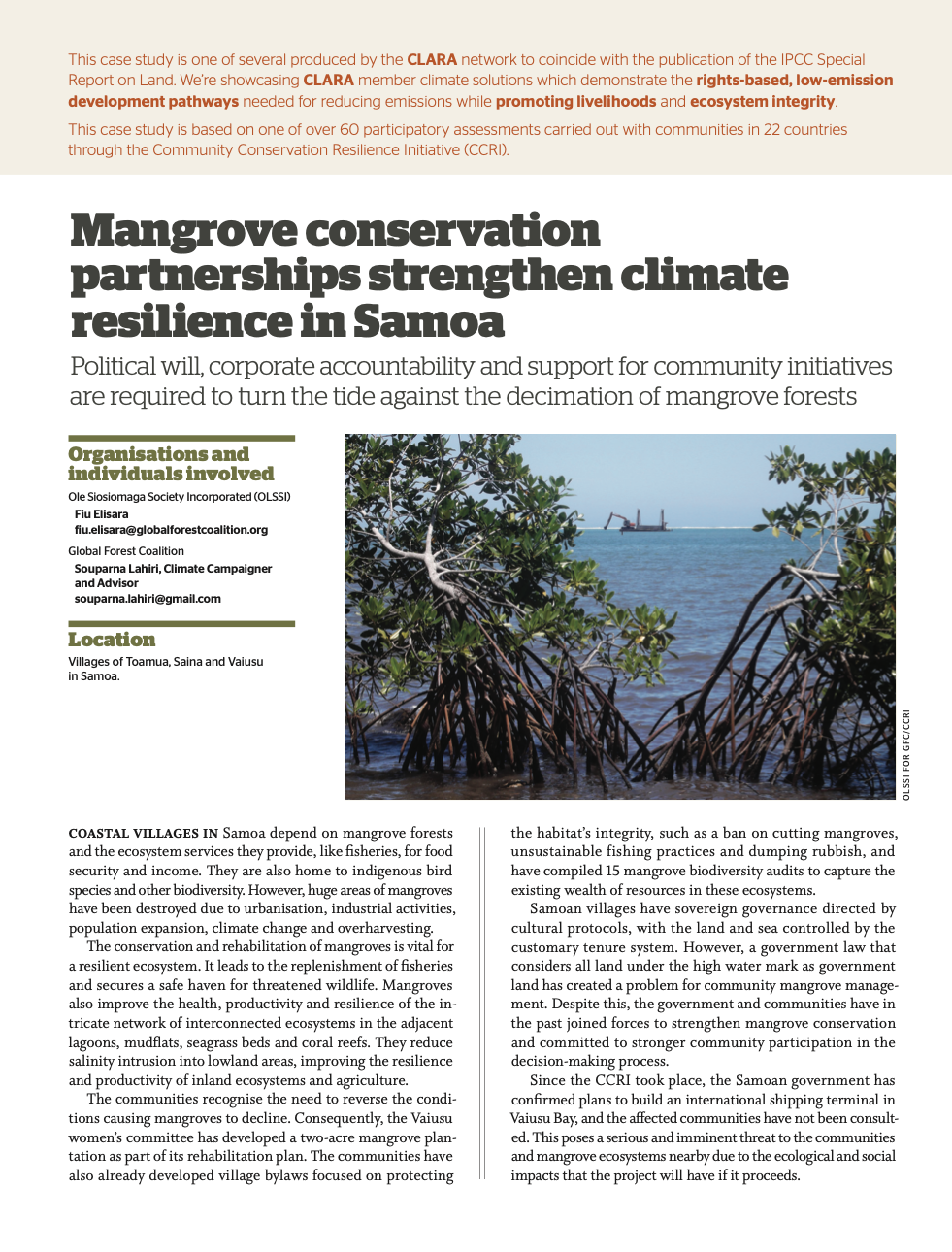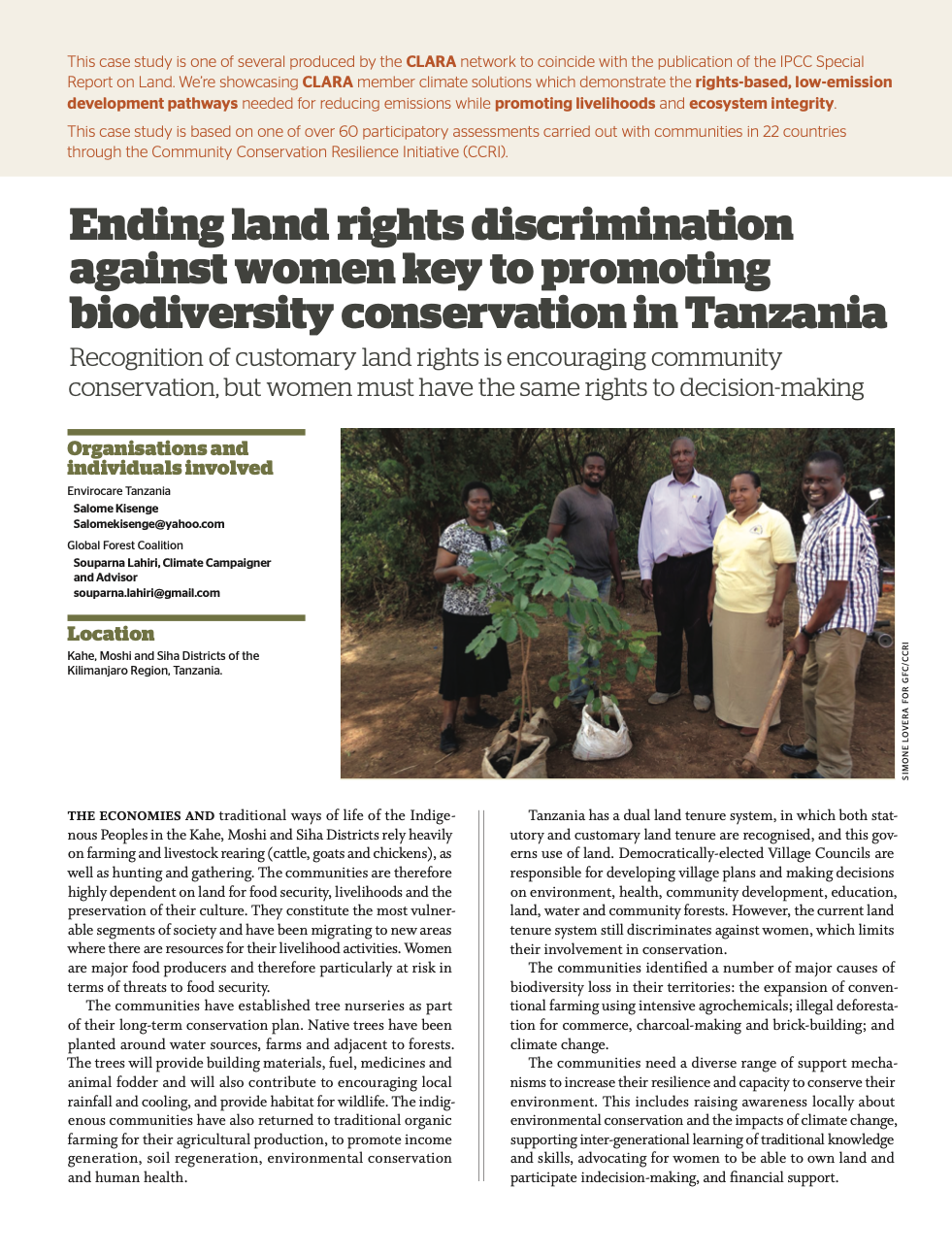PUBLICATIONS
CLARA network publications shared here. Recent relevant work by CLARA member organizations also included.
CLARA maintains the website www.peoplesNDC.org. The site has a large Library of material about land and climate issues, including adaptation, restoration, participation and rights, target-setting, and climate finance. We invite students, teachers, activists and civil society groups to use the material to get engaged in local and national climate action.
Click on the image to the left to see the Full Report.
To see the Executive Summary of this ground breaking 2018 CLARA report click here.
30 July 2024
CLARA responds: SBTi rejects the use of carbon credits as offsets; questions remain about addressing scope 3 emissions
CLARA has encouraged SBTi to maintain its evidence-based approach to carbon market design. Here we discuss an internal conflict at SBTi and the discussion papers just published. Read more.
13 June 2024
Analysis of the Bonn Climate Conference from Members of CLARA
CLARA Bonn Closing Press Briefing
CLARA members respond to outcomes from the two-week intersessional climate talks in Bonn which finished up on June 13. Article 6.2 and 6.4 negotiations on guidelines for trading carbon offsets remain deadlocked. Modest progress on Article 6.8 negotiations for non-market cooperative approaches including the launch of the web-based NMA Platform, although barriers for non-party stakeholder access remain. After four years of stalled talks on agriculture, finally some promise on the new Sharm el-Sheikh joint work program. Concerns that more than 300 bioenergy projects may be eligible for finance under the new 6.4 mechanism. And big problems emerged in the talks on finance – the New Collective Quantified Goal (NCQG) – and on efforts to reduce emissions – the Mitigation Ambition and Implementation Work Program. Parties did themselves no favors preparing for COP 29 later this year in Baku, Azerbaijan.
2 June 2024
Article 6.8 Update - In-Session meeting at SB60
Article 6.8: The Untapped Potential of Paris’s Non-Market Mechanism
The Article 6.8 mechanism has huge potential to change the disastrous business-as-usual trajectory the world is currently on. Negotiating parties should move beyond their obsession with carbon offset markets and embrace the diverse range of non-market-based approaches. They must show political will to deliver on a mechanism that addresses the climate and biodiversity crisis equitably while enhancing the role of LCIPs in climate actions. CLARA points to the profusion of additional financing options, including through indigenous federations, that have been developed since COP26.
1 June 2024
UN-REDD+ and Article 6 Carbon Markets are incompatible
False Friends: Why UN-REDD+ and Article 6 Carbon Markets are Incompatible
A Carbon Market Watch / CLARA Briefing
Most REDD+ finance to date has been non-market. Some Parties now want to claim REDD+ for use in carbon markets. This brief explains why that’s a bad idea.
Countries are trying to turn holistic UN REDD+ results into carbon credits. Within UN negotiations, these same actors are trying to create a ‘fast track’ for UN REDD+ results to become Article 6.2 ITMOs.
The briefing outlines the differences between UN REDD+ and Article 6.2 and highlights the inherent risks of REDD+ that make it incompatible with offsetting. Parties should instead prioritise alternative non-market based approaches to financing REDD+ projects.
5 April 2024
Article 6.8 moves toward implementation
CLARA submits ideas for further collaboration:
Strengthening Collaboration across Sectors
Funding through Indigenous-led mechanisms
Joint Mitigation Adaptation + forest protection
Using the Web-based Platform -- direct access
13 December 2023
CLARA Responds to ‘UAE Consensus’ at the end of COP28
Synopsis of good progress made — and bad texts turned away.
Quotes from CLARA members from 13 December, at the close of COP28.
CLARA Response to UAE Consensus
December 2023
CLARA Press Releases and Briefings from COP28
At COP28 in Dubai, CLARA members are engaged on securing a fossil fuel phase-out, on good outcomes in the Global Stocktake, and in monitoring Article 6 proposals around carbon markets. CLARA is also working with the Glasgow Committee on Non-Market Approaches to launch the Article 6.8 mechanism at COP28.
Greenpeace / CLARA Report Release
FAO ‘Roadmap’ Over-Relies on Dangerous Bioenergy
18 September 2023
Ready to Launch - Article 6.8 at COP28
CLARA again argued for a strong focus on land use in the Article 6.8, putting community rights and ecological integrity at the center of the non-market mechanism. CLARA also proposed activities that would strengthen the 6.8 launch at the upcoming Conference of Parties (COP28).
16 March 2023
CLARA Reflection – No Space for Offsets in our remaining global carbon budget – IPCC concurs
The IPCC is about to release its state-of-the-climate ‘Synthesis Report’. The IPCC’s main message is clear: “the remaining carbon budget will be rapidly depleted given current emissions and existing and planned fossil fuel infrastructure.” This new CLARA brief, written by Professor Doreen Stabinsky, assesses the use of carbon offsets and carbon trading in the context of this rapidly declining carbon budget. What does the Brief find? NO remaining space for offsets!
See CLARA’s ‘No Space for Offsets’ brief
21 September 2022
CLARA Open Letter to the Voluntary Carbon Market Integrity (VCMI) Initiative
The VCMI Initiative attempts to set a standard for ‘high-quality’ carbon credits. CLARA member organizations submitted comments to the VCMI using the initiative’s pre-approved format. But we felt that the approach used sharply limited the kinds of questions that could asked about the Initiative. CLARA members were uncomfortable with both the content of the Draft Code for certifying ‘high quality’ credits, and the ways in which that standard was created, primarily by market actors keen on trading carbon. These failures of integrity led us to publish an Open Letter to the VCMI.
See CLARA’s open letter to VCMI here
28 February 2022
CLARA Submission on Paris Agreement Non-Market Mechanism
The protracted set of negotiations around Article 6 of the Paris Agreement were finally concluded at COP26 in Glasgow. The UNFCCC asked for submissions on the ‘non-market mechanism’ found at Article 6.8 of the Paris Agreement. CLARA submitted its suggestions for operationalization of this mechanism, with ideas on scope, funding, and governance of Article 6.8. CLARA’s submission can be found on the UNFCCC website with other submissions on the topic.
CLARA submission on Article 6.8
31 May 2021
Clara’s Proposal for Ambition in Article 6 Mechanisms
Calling for launch of the non-market mechanism at Glasgow COP26
Responding to the UNFCCC SBSTA call for input on ‘Ambition in Article 6’, CLARA made this submission. Rules on Article 6 pertain to market and non-market mechanisms to increase ambition under the Paris Agreement. But those rules haven’t been finalized. Negotiations have focused almost entirely on carbon market mechanisms, with very little attention to Article 6.8 of the Paris Agreement, which calls for creation of a ‘non-market mechanism’. Several Parties have noted that Article 6.8 discussions are being ‘held hostage’ by the strong negotiating focus on carbon market creation. CLARA’s submission calls for the immediate launch of a non-market mechanism under Article 6.8.
The CLARA submission also:
identifies ‘new and additional’ resources based on an extension of the Common But Differentiated Responsibility (CBDR) frame that’s found in both the Convention and the Paris Agreement.
situates Article 6.8 within the broader context of post-COVID recovery, making claims on ‘new and additional’ resources, while noting the urgency of a larger, post-pandemic, non-market response.
advances a conceptual distinction (and draws a clear line) between use of the term/approach ‘Nature based Solutions’ in the market-focused Article 6.2 and 6.4 mechanisms, and the land-use sector guidance of the Green Climate Fund.
1 March 2021
CLARA on Net Zero
CLARA outlines member concerns with ‘net zero’ and the shift away from absolute reduction targets. ‘Net Zero’ targets make it easier for Parties to delay and distract away from the hard choices associated with deep emission cuts. CLARA members are also deeply concerned about corporations using ‘Nature-based Solutions’ for greenwashing, and how ‘net zero’ and ‘Nature-based Solutions’ are being used to downgrade attention to rights-based approaches and the central importance of ecosystem integrity.
15 December 2020
Above and Beyond Net Zero - Carbon Market Watch
CMW describes various alternatives to compensation for climate action and sustainable development. View report
23 November 2020
CLARA Submission, Koronivia (Agriculture) Workstream of the UNFCCC: Livestock Management
GHG emissions associated with livestock production and meat overconsumption are rising. CLARA calls for a Just Transition for farmers and farm and food workers towards healthy food and agriculture. Livestock has been an intermediate host and vector for recent pandemics. Rearing practices and intensities need to be re-examined. View submission
26 October 2020
Not Zero: How ‘Net Zero’ Targets Disguise Climate Inaction
ActionAid, Corporate Accountability, Demand Climate Justice, Friends of the Earth International, Third World Network, and WhatNext?
This joint briefing highlights concerns that many governments and corporations are jumping on the bandwagon and declaring “net zero” climate targets. These announcements might sound like they signify ambitious climate action. But unfortunately, the “net” in “net zero” is being used to green-wash weak climate targets, and could end up driving huge land grabs, particularly in the global South. Instead of accepting “net zero” targets at face value, civil society and media must scrutinize these announcements to assess whether they signify real climate action. Link here
28 July 2020
CLARA Submission to the UNFCCC Standing Committee on Finance (SCF) RE: SCF’s Proposed ‘Nature-Based Solutions’ Forum
CLARA emphasized the importance of addressing climate and biodiversity concerns in an integrated manner; noted the importance of Ecological Integrity; and the incompatibility of NBS with use of offsets. View submission
5-9 December 2019
CLARA’s Recommendations for COP25 in Madrid: Article 6 Mechanisms, Importance of Ecosystems
5 December
Two dozen CLARA members are at the 25th Conference of Parties to the UN Climate Convention. The big focus of negotiations during ‘COP25’ pertains to market and non-market mechanisms in Article 6 of the Paris Agreement. It’s the last part of the Paris Agreement to be addressed by Parties. CLARA recommendations on Article 6 here
9 December
CLARA members call for more serious attention to the importance of integrated work on saving biodiversity and addressing the climate crisis. CLARA members are critical of the ‘Nature Based Solutions’ concept when it fails to account for rights and biodiversity; and where ‘nature based solutions’ are proposed as offsets. Our statement here
1 December 2019
Real Solutions, Real Zero: How Article 6.8 of the Paris Agreement Can Help Pave the Way to 1.5°
There are a plethora of real solutions at hand, which only require the political will to help make them accessible Real Solutions, Real Zero: How Article 6.8 of the Paris Agreement Can Help Pave the Way to 1.5° and implementable at scale. Read here
1 October 2019
Wrap-Up from Climate Action Summit in New York
CLARA analyzed the results of the one-day summit called by UN Secretary General Guterres, and in particular announcements made in the ‘Nature Based Solutions’ workstream. See report
8 August 2019
IPCC Releases Special Report on Land - CLARA Responds
Today the IPCC released the second Special Report as part of the Sixth Assessment Cycle. This is the first-ever report exclusively on Land issues in the context of climate mitigation and adaptation. It’s important to read this S.R. on Land also in the context of the previous Special Report, which focused on the 1.5 degree temperature limit goal. CLARA’s Press Release responds to the report release.
1 April 2019
CLARA’s Submission to the 2019 Climate Action Summit: Addressing Rights, Biodiversity, and Agroecology for Climate Action
Our submission builds on the ‘Missing Pathways’ report to indicate the synergistic nature of people-led climate solutions with respect to community land rights, ecosystem-based approaches, and agroecology with food system change. View Here
CLARA member submissions to the Summit’s NBS Workstream
These submissions showcase real-world examples of ambitious and transformative climate action which benefits communities and nature through initiatives pertaining to, for example, agroforestry, community forest management, alternative agricultural systems and re-wilding.
Click on the thumbnails below to read the full submissions.
ActionAid
Ambiente y Sociedad
FECOFUN (Nepal)
Fern (DRC)
Global Forest Coalition (Chile)
Fern (Scotland)
Fern/Teis communal forest (Spain)
Forests of the World (Honduras, SP)
Forests of the World (Honduras)
Global Forest Coalition (Chile, SP)
Global Forest Coalition (DRC, FR)
Global Forest Coalition (India)
PFPI/WOLF (Slovakia)
WARSI (Indonesia)
Global Forest Coalition (DRC)
Fern/Association Luzlinar (Portugal)
Kayapo Project (Brazil)
Oxfam (Bolivia)
Wild Heritage
Oxfam (Zimbabwe)
Global Forest Coalition (Kenya)
Global Forest Coalition (Malaysia)
Global Forest Coalition/FECOFUN (Nepal)
Global Forest Coalition (Paraguay)
Global Forest Coalition (Paraguay, SP)
Global Forest Coalition (Russia)
Global Forest Coalition (Russia, RU)
Global Forest Coalition (Samoa)
Global Forest Coalition (Tanzania)
1 October 2018
Missing Pathways to 1.5°C: The Role of the Land Sector in Ambition Climate Action
CLARA’s pathbreaking report ‘Missing Pathways’ provides an alternative set of approaches for limiting warming to 1.5°C. CLARA members asked: what level of climate ambition can be based on approaches already available, and that safeguard food security and food sovereignty, land rights, and biodiversity? ‘Missing Pathways’ was released the same month as the IPCC Special Report on the 1.5°C goal. CLARA fully supports the IPCC’s objective of strengthening the global response to the threat of climate change while meeting sustainable development goals and reducing poverty. ‘Missing Pathways’ responded specifically to the concern that many of the pathways chosen for modeling by the IPCC rely heavily on untested mitigation approaches such as bioenergy with carbon capture and storage (BECCS).
1 June 2017
Treading Carefully: Climate Action in the Land Sector
CLARA’s first published this consideration of land-sector climate action for the 2017 UNFCCC negotiations, with the aim of strengthening implementation of Paris Agreement. Link





